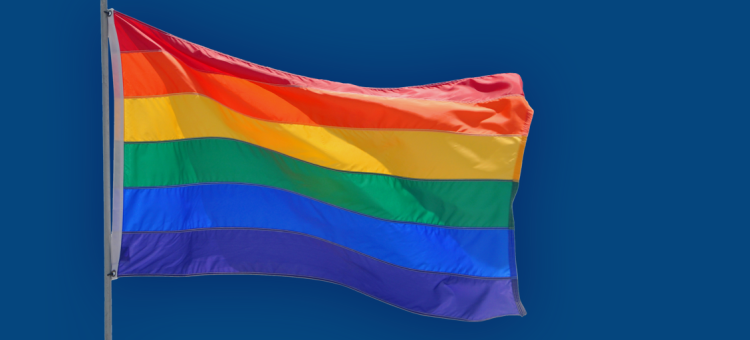Key Findings:
- Transgender workers are most likely to work at gender inclusive workplaces–but a majority of transgender workers still say that employers do not do enough to support their community
- Transgender adults deal with a larger number of microaggressions than cisgender adults, and more often
- Those who already know a transgender or non-binary individual are much more likely to be allies of the transgender and nonbinary community
- Majority of U.S. adults oppose legislation that would prohibit classroom lessons about sexual orientation or gender in school
Transgender workers are most likely to work at gender inclusive workplaces–but a majority say that employers do not do enough to support their community
Transgender workers are more than twice as likely as cisgender workers to say their employers are not doing enough to support transgender employees (38% vs. 16%). But, they are also twice as likely to say their employers are doing too much (26% vs. 13%). It’s possible these transgender individuals prefer less attention on their gender identity.
Cisgender workers are much more likely to take the middle view: 66% say say their employers are doing “just enough” to accommodate transgender employees, compared with 36% of transgender employees who say the same.
Nearly all transgender workers (86%) say it's important to them that their employers have gender inclusive policies, while only half (52%) of cisgender workers say the same. Transgender workers are more likely to say that inclusive policies are important than LGBTQ (75%) and nonbinary (71%) workers.
- LGBTQ workers (75%) are much more likely than non-LGBTQ adults (49%) to say gender inclusive policies at work are important to them.
- 71% of noncomforming workers, 60% of women, and 45% of men say gender inclusive policies at work are important to them.
- Young workers are more likely than older workers to say gender inclusive policies at work are important to them: 61% of adults age 18-34, 49% of adults age 35-64, 48% of adults age 65+.
- People of color are more likely to say gender inclusive policies at work are important to them: 66% of Asian people, 54% of Hispanic people, 58% of Black people, 50% of white people.
Workers who are Democrats or who lean to the Democratic party are more than twice as likely as workers who are Republicans or who lean towards the GOP (77% vs. 31%) to say gender inclusive policies at work are important to them. U.S. regions that typically lean Democratic reflect this trend, as 58% of those who live in the Northeast and 57% of those who live in the West say gender inclusive policies in the workplace are important to them, compared to 51% of those living in the Midwest and 49% of those living in the South.
Transgender workers’ emphasis on gender inclusive policies may lead them to seek workplaces that encourage inclusive practices. In fact, 81% of transgender workers say their employers encourage inclusive practices, compared with 61% of cisgender workers who say the same.
- Identical numbers of transgender and cisgender workers say their workplaces have a diversity and inclusion policy or practice (46% of transgender workers, 46% of cisgender workers)
- Similar numbers of transgender and cisgender workers’ workplaces have employee resource groups (28% of transgender workers, 26% of cisgender workers)
- Transgender workers are nearly twice as likely to have the following in their workplace than cisgender workers
- Gender neutral bathrooms (38% vs. 19%)
- pronoun sharing (45% vs 23%)
- Inclusive bathroom policies (32% vs 13%)
- Pronoun nametags (21% vs 10%)
Transgender adults deal with a larger number of microagressions than cisgender adults, and more often
Some microagressions are somewhat common to the overall U.S. population, but transgender, individuals experience them to a much higher degree.
- Transgender adults are more than twice as likely than cisgender adults to say they codeswitch often (55% vs 20%)
- 45% of transgender adults but only 25% of cisgender adults experience mansplaining often
Individuals who say they experience these microaggressions “often”
Those with marginalized identities are also more likely to say they codeswitch and experience mansplaining:
- LGBTQ adults are much more likely than cisgender, heterosexual adults to say they codeswitch often (35% vs 18%), and experience mansplaining often (34% vs 24%).
- 31% of gender diverse adults codeswitch often compared, with 20% of men and 21% of women.
- 34% of gender diverse adults and 29% of women experience mansplaining often compared with 21% of men.
Other microagressions are rare among the general population, but very common among the transgender community.
- Transgender adults are 14 times as likely than cisgender adults to say they hide their gender often (43% vs 3%)
- Transgender adults are 3 times more likely than cisgender adults to say they sometimes hide their gender (15% vs 5%)
- Nearly all (84%) cisgender adults say they rarely hide their gender, compared to 20% of transgender adults who say the same.
- Transgender adults are nearly 11 times as likely than cisgender adults to say others often accidentally use the wrong gender markers when referring to them (43% vs 4%).
- Transgender adults are 3 times more likely than cisgender adults to say sometimes others accidentally misgender them (27% vs 8%)
- Nearly all (85%) cisgender adults say others rarely accidentally misgender them, compared to 25% of transgender adults who say the same.
- Transgender adults are 10 times as likely than cisgender adults to say others often intentionally use the wrong gender markers when referring to them (40% vs 4%).
- Transgender adults are 3 times more likely than cisgender adults to say sometimes others intentionally misgender them (26% vs 8%)
- Nearly all (85%) cisgender adults say others rarely intentionally misgender them, compared to 32% of transgender adults who say the same.
- Transgender adults are 9 times more likely than cisgender adults to say others often judge them for using the bathroom that matches their gender (36% vs 4%).
- Transgender adults are 6 times more likely than cisgender adults to say sometimes others judge them for using the bathroom that matches their gender (24% vs 4%)
- Nearly all (89%) cisgender adults say others rarely judge them for using the bathroom that matches their gender, compared to 37% of transgender adults who say the same.
Individuals who say they experience these microaggressions “often”
Among the LGBTQ community, Hispanic adults are much more likely than white adults to say they deal with microaggressions.
- Hispanic LGBTQ adults are nearly 3 times more likely to be intentionally misgendered than white LGBTQ adults (20% of Hispanic LGBTQ adults, 14% of Black LGBTQ adults, 8% of white LGBTQ adults).
- Hispanic LGBTQ adults are twice as likely to be accidentally misgendered than white LGBTQ adults (20% of Hispanic LGBTQ adults, 16% of Black LGBTQ adults, 10% of white LGBTQ adults).
- Hispanic LGBTQ adults are twice as likely to say others often judge them for using the bathroom that matches their gender (18% of Hispanic LGBTQ adults, 11% of Black LGBTQ adults, 8% of white LGBTQ adults).
- Hispanic LGBTQ adults are nearly twice as likely than white LGBTQ adults to say they hide their gender identity often (18% of Hispanic LGBTQ adults, 12% of Black LGBTQ adults, 10% of white LGBTQ adults).
Those who already know a transgender or non-binary individual are much more likely to be familiar with gender neutral language
Adults in the U.S. who know a transgender or non-binary person are more likely than those who don’t know to have a better understanding of gender neutral language.
- Nearly all (84%) adults who know a transgender or non-binary person say they are familiar with using gender neutral language, compared with half (52%) of adults who don’t know a transgender or non-binary person–a difference of 32%.
- 7 in 10 (70%) adults who know a transgender or non-binary person are comfortable using gender neutral pronouns, compared with half (51%) of adults who don’t know a transgender or non-binary person–a difference of 19%.
- 6 in 10 (62%) adults who know a transgender or non-binary person say it would not be difficult for them to use gender neutral pronouns, compared with half (49%) of adults who don’t know a transgender or non-binary person.
In fact, nearly all (94%) individuals who know a transgender person say they understand what it means to be transgender, compared with 80% of people who don’t know a transgender person.
Further, whether an individual knows a transgender person seems to color their opinion on whether society does enough, or not, for the transgender community. Those who know a transgender person are much more likely to say society does too little to support transgender or nonbinary individuals than those who do not know a transgender person (44% vs 31%).
Overall, nearly 6 in 10 (59%) adults in the U.S. know someone who is transgender or nonbinary. Those who know a transgender or nonbinary person are more likely to have a marginalized gender or sexual orientation themselves:
- 3 in 4 LGBTQ adults know a transgender or nonbinary person, compared with about half of cisgender, heterosexual adults (78% vs 57%).
- More nonconforming individuals (77%) and women (62%) than men (56%) say they know a transgender or nonbinary person.
Majority of U.S. adults oppose legislation that would prohibit classroom lessons about sexual orientation or gender in school
About half (53%) of U.S. adults oppose of legislation that would prohibit classroom lessons about sexual orientation or gender in school, while 43% support.
- 61% of Democrats, 52% of Independents, and 49% of Republicans oppose such legislation.
- White adults are most likely to oppose (58% of white adults oppose, 47% of Hispanics oppose, 46% of Asian adults oppose, 43% of Black adults oppose)
Read more about our polling methodology here.
Click through all the results in the interactive toplines below:



